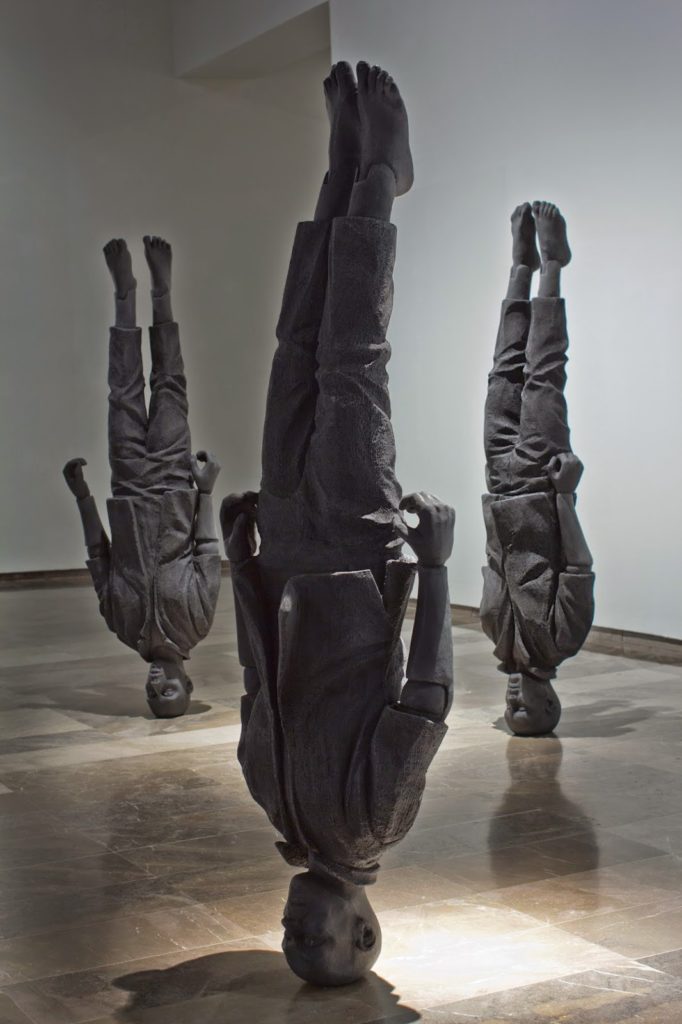
Spotted these at the Towne Grill


Spotted these at the Towne Grill
This might be the best thing I’ve seen on AI. Runs 16 min. Aside from the content presented, I was impressed by the presenter. I would like to know (but will never know) if he was reading from a prompter of some kind. It did not appear so. Could he have memorized that much copy? Again, it looked more extemporaneous. Doesn’t matter, really. I’m just curious. Extremely well done.
“Somewhere in the 2030-2035 timeframe we’ll begin to see highways designated as “driverless only,” allowing vehicles that can be switched into driverless mode.”
 I remember the first recorded interview I did (1972). It was with Bill Walsh and Jack McDaniel, two local businessmen who organized the Fall Festival Parade every year in the little town where we lived. When I got back to the studio and dubbed the audio from a cassette to reel-to-reel tape, I was horrified to hear how awful I sounded. Long, rambling questions. It still makes me cringe.
I remember the first recorded interview I did (1972). It was with Bill Walsh and Jack McDaniel, two local businessmen who organized the Fall Festival Parade every year in the little town where we lived. When I got back to the studio and dubbed the audio from a cassette to reel-to-reel tape, I was horrified to hear how awful I sounded. Long, rambling questions. It still makes me cringe.
I grabbed a splicing block, a grease pencil and some splicing tape (look ‘em up) and sliced out my questions. But first I had to record the questions without sounding like a moron… and then — oh so tediously — splice them back with the answers. Yes, the interview still sounded like shit.
No idea how many interviews I recorded during the next 40 years. A bunch. And I don’t think I got much better at it. Looking back it’s easy to see what I was doing wrong: talking too much. I mistakenly thought I was and equal part of the interview. A natural hubris, I suppose.
Few things infuriate me more than listening to an interview with someone who really has something interesting to say but never gets to say it because the interviewer continuously interrupts. Or eats up vast amounts of time with endless, rambling questions.
In recent years I’ve found a way to address this failing of mine. I write out every question I want to ask (trying to stay close to 10) and do my best not to vary. But more often than not, when I listen to the interview, I find I can delete my questions entirely, leaving the listener/viewer with what they came for.
There are some interviewers who add more than they detract. I’m fond of Daniel Tosh’s interviews (if one can really call them that). I like James Lipton’s (Inside the Actor’s Studio) style. But — like me — most interviewers simply can not shut the fuck up and let the subject talk.
SPACEX TO SEND PRIVATELY CREWED SPACECRAFT BEYOND MOON NEXT YEAR
“We are excited to announce that SpaceX has been approached to fly two private citizens on a trip around the moon late next year. They have already paid a significant deposit to do a moon mission. Like the Apollo astronauts before them, these individuals will travel into space carrying the hopes and dreams of all humankind, driven by the universal human spirit of exploration. We expect to conduct health and fitness tests, as well as begin initial training later this year. Other flight teams have also expressed strong interest and we expect more to follow. Additional information will be released about the flight teams, contingent upon their approval and confirmation of the health and fitness test results.”
“This very large thing (the net) provides a new way of thinking (perfect search, total recall, planetary scope) and a new mind for an old species. It is the Beginning. […] At its core 7 billion humans, soon to be 9 billion, are quickly cloaking themselves with an always-on layer of connectivity that comes close to directly linking their brains to each other. […] By the year 2025 every person alive — that is, 100 percent of the planet’s inhabitants — will have access to this platform via some almost-free device. Everyone will be on it. Or in it. Or, simply, everyone will be it.”
— The Inevitable by Kevin Kelly
“All information will come in by super-realistic television and other electronic devices as yet in the planning stage or barely imagined. In one way this will enable the individual to extend himself anywhere without moving his body— even to distant regions of space. But this will be a new kind of individual— an individual with a colossal external nervous system reaching out and out into infinity. And this electronic nervous system will be so interconnected that all individuals plugged in will tend to share the same thoughts, the same feelings, and the same experiences. […] If all this ends with the human race leaving no more trace of itself in the universe than a system of electronic patterns, why should that trouble us? For that is exactly what we are now!”
— The Book: On the Taboo Against Knowing Who You Are by Alan Watts
“Humanity is developing a sort of global eyesight as millions of video cameras on satellites, desktops, and street corners are connected to the Internet. In your lifetime it will be possible to see almost anything on the planet from any computer. And society’s intelligence is merging over the Internet, creating, in effect, a global mind that can do vastly more than any individual mind. Eventually everything that is known by one person will be available to all. A decision can be made by the collective mind of humanity and instantly communicated to the body of society.”
— God’s Debris by Scott Adams
In all of my reading about Taoism, Buddhism and other eastern mystical traditions, one theme repeats over and over. That there is no permanent, on-going self. That feeling of “me” and “I” is an illusion. And the source of all suffering. Clinging and resisting is mixed in (I want things to be the way I want things to be) but I won’t try to tackle that here.
There is nothing more difficult for me to comprehend than the idea that my feeling of “me-ness” is just an illusion. Not real. I’ve been struggling with this for many years. And I’ve grabbed on to various metaphors in an effort to see (or feel) how this could possibly be.
For the last week or so I’ve been thinking of myself as a computer connected to a vast network of other computers. Over the years, every part of the computer has been replaced. The monitor, the hard drive, the keyboard, all the internal parts… all have been replaced. In no sense is the computer the same computer that was there in the beginning.
In this tortured analogy, the computer operating system is my brain(mind?). But from the very beginning, the OS was being continuously updated. This is where the analogy gets wobbly because who or what is using the computer? I don’t have a clue so I’m gonna say the computer OS is using itself and, in the process, creating an imaginary sense of self that believes it is operating the computer. Why is it doing this? No clue. How is it doing this? No clue.
But every day the OS changes and evolves as it processes ever more information. Emails, text messages, videos, songs, news articles, and all the rest. Every new bit makes a tiny change in the OS so it is never the same from one moment to the next. From the computer’s perspective, everything is humming along fine. An endless flow of new and interesting stuff.
But let’s assume we can only keep the hardware and software running for 80 years. Manufacturer’s planned obsolescence or something. The network knows this and when one computer goes “offline,” another one comes on, running the latest OS. The network is always becoming. It only exists as an entity in relation to the network.
But the imagined self — the ghost in my machine — is horrified by this prospect. It doesn’t know (can’t know?) it’s not real. It’s non-existence is horrifying and unimaginable (take a moment to appreciate the irony). I took a moment to watch the final scene of 2010 (A Space Odyssey) in which Dr. Chandra explains to HAL that it will be destroyed.
So, no self… happy ending (No ending, actually). Self… The End. Oblivion. Easy choice. But it is only from my God-like, Creator of the Analogy perspective that any of this can be considered. The only way I can keep my head from exploding (one of the most difficult parts to replace) is to imagine the “always Becoming OS” can generate this view, this understanding and in so doing, recognize the illusory nature of the self. Enlightenment.
Additional reading:
Neuroscience backs up the Buddhist belief that “the self” isn’t constant, but ever-changing
You’re a completely different person at 14 and 77

Via Tu recepcja
I’ve really never been either so I’m talking about something here with which I have no first-hand experience. No points to make here, just thinking out loud.
In the last week I have seen three men, standing at intersections, holding cardboard signs that read: Struggling and Hungry. Two of these were in Columbia, MO (within a quarter mile of each other) and the third here in Jefferson City, MO. I’ll come back to the signs in a minute.
First, what do we call what these men were doing? “Begging” seems demeaning but “panhandling” seems euphemistic. “Homeless” seems to be the accepted term but we don’t know if the person has a home or not. But let’s go with homeless.
Second question: On what basis does someone decide to give/not give money to a homeless person? Physical appearance? Do they look hungry? Something in their expression or dress? Their body language? Do they have a dog? The answer is different for everyone of course and can change from encounter to encounter.
Is a homeless person aware of such considerations? Do they smile and make eye contact with motorists or have they found that to be a turn-off? Or a positive? Did they consciously bring their dog because they know dog lovers will be moved by the sight of the pooch? Have they learned that walking down the line of cars at a stop light can appear “pushy?”
Or perhaps by the time someone finds themselves on the side of highway holding a sign such calculations have given way to desperation. The answer is probably “all of the above.” Some are undoubtedly lazy and could get a job and some are at the end of their rope.
Back to the signs.
Do some signs work better than others? Would clean, printed sign say this person is just looking for a hand-out, while a ragged piece of cardboard with a scrawled plea touch a heart? And what about the “Struggling and Hungry” wording? Just coincidence? Or did someone discover (trial and error?) that phrase worked better than “Please help?” And is there any communication between sign-makers? Standing in line at McD’s perhaps? Do the homeless have smartphones and would that automatically kill a generous impulse? Should it?
I usually give if I can do so without endangering the person by making them dash between cars to get to my lane. And, yes, I usually give if there’s a dog (“Buy some food for the pup”). And I’m turned off when I see two people working an intersection. Do they see this a boring job and it’s better to have a pal to pass the time?
“I wonder if TV will now help us undo the damage they unwittingly begat. Perhaps by having a Trump-like character get what’s coming to him. Put him in Archie Bunker’s chair, and see what happens.” — Dave Winer
Hard for me to imagine Aaron Sorkin isn’t hammering away on his MacBook at this moment. I’ve been thinking in terms of a tell-all book or movie (Primary Colors, Game Change, etc) but a TV series would have a longer life span. Gotta be HBO or Netflix or Amazon to properly portray the monster. Stay tuned.